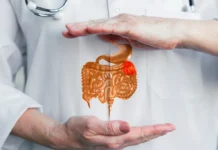Allergy and clinical immunology is a specialized field of medicine dedicated to the identification, prevention, and management of allergic and immunological disorders. Allergic conditions arise from an exaggerated immune response to typically harmless substances like pollen, pet dander, or certain foods.
In contrast, immunological disorders result from inherent issues within the immune system itself, encompassing autoimmune ailments and immunodeficiency disorders.
Professionals in the field of allergy and clinical immunology are extensively trained to diagnose and address allergic and immunological issues, including:
- Allergies to various triggers, such as food, pollen, pet dander, insect stings, and other allergens.
- Asthma.
- Eczema.
- Hives.
- Allergic rhinitis (commonly known as hay fever)
- Anaphylaxis.
- Autoimmune disorders like rheumatoid arthritis, lupus, and Crohn’s disease
- Immunodeficiency disorders, including HIV/AIDS and severe combined immunodeficiency (SCID),
- Allergic immunotherapy is commonly referred to as allergy shots.
In addition to clinical practice, allergy and clinical immunologists often engage in research endeavours aimed at developing innovative treatments and potential cures for allergic and immunological ailments.
What to Expect When Consulting an Allergy and Clinical Immunologist:

When you schedule an appointment with an allergy and clinical immunologist, your journey towards understanding and managing your condition typically follows these steps:
- Medical History and Symptom Assessment: Your healthcare provider will initiate the consultation by inquiring about your medical history and evaluating your symptoms.
- Physical Examination: A comprehensive physical examination may be conducted to gather additional information.
- Diagnostic Tests: Your allergist may recommend various diagnostic tests, including blood tests or skin tests, to pinpoint the precise cause of your condition.
- Tailored Treatment Plan: Once armed with a comprehensive understanding of your condition, your healthcare provider will collaborate with you to create a personalized treatment plan. This may involve medications, allergy immunotherapy, or other therapeutic interventions.
- Patient Education: Allergy and clinical immunologists play a crucial role in educating patients about managing their condition and avoiding triggers that exacerbate symptoms.
Consultation with an allergy and clinical immunologist is essential if you feel you have an allergy or an immunological problem. They have the knowledge and experience to accurately diagnose your disease and provide an effective symptom management strategy, thereby improving your quality of life.
Allergy and Immunology Services
Specialized allergy and immunology services are offered by experts who diagnose and manage allergies and immune system disorders. Allergies are hypersensitivity reactions to specific chemicals called allergens, whereas immune system disorders are problems that impair the body’s ability to fight infections.
Common conditions addressed by allergy and immunology specialists encompass:
- Asthma
- Allergic rhinitis (commonly referred to as hay fever)
- Food allergies
- Eczema
- Hives
- Angioedema
- Allergic reactions to insect stings and bites
- Drug allergies
- Immunodeficiency disorders
- Autoimmune diseases
Services offered by Allergy and Immunology Specialists
Allergy and immunology specialists extend a range of services to their patients, including:
- Diagnosis: These specialists employ various methods to diagnose allergies and immune system disorders, which may involve physical examinations, medical histories, skin tests, blood tests, and challenge tests.
- Treatment: Personalized treatment plans are crafted by allergy and immunology specialists to suit the unique needs of each patient. Treatment options encompass medications, allergy immunotherapy (commonly known as allergy shots), and lifestyle adjustments.
- Education: Patients benefit from comprehensive education provided by allergy and immunology specialists, aiding them in understanding and effectively managing their conditions. This knowledge empowers patients to avoid allergic reactions and enhance their overall quality of life.
If you are experiencing symptoms of an allergy or immune system disease, it is critical that you speak with an allergy and immunology professional. Timely diagnosis and treatment can help avert potential serious complications.
Some tips for finding an allergy and immunologist
Here are some guidelines for identifying an allergy and an immunologist:
- Consult Your Primary Care Physician: Request a referral from your primary care doctor who can guide you toward a qualified specialist.
- Verify Insurance Coverage: Contact your health insurance provider to ascertain which allergy and immunology specialists are within your network.
- Online Research: Peruse online reviews and ratings of allergy and immunologists in your geographical area to gauge their reputation and patient experiences.
- Schedule consultations: Arrange consultations with a few different allergy and immunology specialists before making your final selection.
Ask your Allergy and Clinical Immunology Specialist
During your consultation, make sure to inquire about:
- Their Experience: Ask about their experience treating patients with your specific condition.
- Treatment Approach: Discuss their treatment philosophy and approach to managing your condition.
- Availability and Fees: Inquire about their availability for appointments and the fees associated with their services.
Furthermore, it is crucial to choose an allergy and immunology specialist with whom you feel comfortable. You should be able to ask questions and have confidence that they are attentive to your concerns and needs.
Immune Thrombocytopenia (ITP)

Immune thrombocytopenia (ITP), also known as idiopathic thrombocytopenic purpura, is a blood disorder characterized by a reduced platelet count. Platelets are small blood cells crucial for clotting, and when their count drops, individuals may experience easy bruising and excessive bleeding.
ITP is predominantly found in children but can affect adults as well. In children, it often presents as acute ITP, typically resolving within six months on its own. In adults, ITP is more likely to be chronic, persisting for longer than six months.
While the exact cause of ITP remains unknown, it is believed to stem from an autoimmune disorder. Autoimmune illnesses occur when the body’s immune system attacks its healthy cells by mistake, and in ITP, this immune reaction targets platelets.
Certain infections, such as HIV, hepatitis, or H. pylori, can also trigger ITP. In these cases, ITP often resolves after the underlying infection is treated.
Common symptoms of ITP include:
- Easy bruising
- Petechiae (small red or purple skin spots)
- Nosebleeds
- Gum bleeding
- Heavy menstrual bleeding
- Extended bleeding from cuts or injuries
In severe instances, ITP can lead to internal bleeding, which can be life-threatening.
When someone is suspected of having ITP, doctors will typically conduct physical allergy testing and review their medical history. In addition, they will run blood tests to check the patient’s platelet levels and rule out other possible causes of bleeding. It’s important to accurately diagnose ITP to ensure proper treatment and management of the condition.
Treatment of ITP
Treatment for ITP aims to elevate platelet counts and minimize bleeding risks. Options include:
- Observation: For those with relatively stable platelet counts and no symptoms, doctors may choose to monitor the condition without immediate intervention. This approach is often suitable for children with ITP, as they frequently recover without treatment.
- Corticosteroids: Immune-suppressing medications like corticosteroids are commonly prescribed to manage ITP in adults.
- Other Medications: Additional drugs like rituximab, eltrombopag, and romiplostim can also be employed to treat ITP.
- Splenectomy: In cases where other treatments prove ineffective, surgical removal of the spleen may be recommended.
The prognosis for ITP varies. Most individuals with ITP eventually recover, but for some, the condition may persist throughout their lives, with a risk of relapse even if it initially resolves.
For those with ITP, collaborating with a healthcare provider to formulate an appropriate treatment plan is essential. Regular monitoring and bleeding risk management are also vital aspects of ITP management.
Allergic rhinitis: A common trouble with simple solutions

Allergic rhinitis, commonly known as hay fever, is a prevalent allergic condition that primarily affects the nasal passages. It results from an exaggerated immune response to allergens such as pollen, dust mites, pet dander, and mold. Symptoms of allergic rhinitis encompass sneezing, a runny or congested nose, itching in the nose, eyes, or throat, and postnasal drip.
Allergic rhinitis can pose significant challenges, especially when it is severe or persistent. It can disrupt sleep, work, school, and social interactions, making it difficult to engage in outdoor activities and exercise. Moreover, allergic rhinitis heightens the risk of developing other allergic conditions like asthma and eczema.
The Trouble of Allergic Rhinitis
While there is no cure for allergic rhinitis, numerous treatments are available to alleviate symptoms. Treatment options include:
- Over-the-counter Medications: Antihistamines and decongestants are effective for managing sneezing, nasal congestion, and itchy noses and eyes.
- Prescription Medications: Prescription antihistamines, nasal corticosteroids, and leukotriene receptor antagonists can provide more potent relief from allergic rhinitis symptoms compared to over-the-counter options.
- Allergy Shots (Immunotherapy): Allergy shots gradually desensitize the body to allergens, reducing the severity of allergic rhinitis symptoms over time.
If you suffer from allergic rhinitis, it is essential to consult with your healthcare provider to determine the most suitable treatment for your specific situation.
Tips for Managing Allergic Rhinitis:
In addition to medical treatment, you can take proactive steps to manage allergic rhinitis symptoms:
- Identify and Avoid Triggers: Identify the allergens that trigger your symptoms and make an effort to avoid them. Maintaining a symptom diary can help pinpoint your specific triggers.
- Maintain a Clean Home: Common triggers like dust mites and pet dander can be reduced by regular dusting and vacuuming, washing bedding in hot water, and keeping pets out of the bedroom.
- Use an Air Purifier: Installing an air purifier in your home can help remove allergens from the indoor air.
- Practice Good hand hygiene. Frequent handwashing can remove allergens from your hands and reduce the risk of transferring them to your eyes, nose, and mouth.
It’s important to remember that if you have allergic rhinitis, you are not alone. Millions of people worldwide grapple with this condition. Effective treatments are available, and with proper management, you can lead a fulfilling and active life.
Pediatric Allergy and Immunology

Pediatric allergy and immunology is a specialized field of medicine dedicated to the diagnosis and treatment of children grappling with allergies, asthma, eczema, and various immune system-related conditions.
Pediatric allergists and immunologists possess specialized expertise in understanding the immune system’s development and functioning in children. Their knowledge extends to diagnosing and managing a broad spectrum of allergic and immunological issues, encompassing:
- Food allergies
- Drug allergies
- Insect sting allergies
- Environmental allergies
- Asthma
- Eczema
- HIV/AIDS
- Primary immunodeficiency diseases
- Autoimmune diseases
Collaborating closely with other healthcare professionals like primary care physicians, pulmonologists, dermatologists, pediatric allergists and immunologists ensures comprehensive patient care. They also assume a crucial role in educating patients and their families about their conditions and effective management strategies.
What are some of the common conditions that pediatric allergists and immunologists address?
Common Conditions Pediatric Allergists and Immunologists Address
- Food allergies: These allergies, which can emerge at any age in children, result from an immune system overreaction to specific foods like peanuts, milk, eggs, and soy. Symptoms vary from mild hives and itching to severe anaphylaxis.
- Drug allergies: Drug allergies, another prevalent type of allergy in children, occur when the immune system reacts adversely to medications, ranging from mild to life-threatening reactions.
- Insect sting allergies: Allergic responses to insect venom, such as bees, wasps, or ants, manifest with symptoms ranging from mild swelling and redness to severe anaphylaxis.
- Environmental allergies: Triggered by airborne allergens like pollen, dust mites, and mold, environmental allergies lead to a spectrum of symptoms, including hay fever, asthma, and eczema.
- Asthma: A chronic lung disease characterized by airway inflammation and narrowing, asthma causes symptoms like wheezing, shortness of breath, and chest tightness.
- Eczema: This chronic skin condition results in dry, itchy, and inflamed skin and often stems from genetic and environmental factors.
- HIV/AIDS: A viral infection targeting the immune system, HIV/AIDS can lead to various health issues, including infections, cancer, and neurological problems.
- Primary immunodeficiency diseases: These rare disorders affect the immune system, rendering children more susceptible to infections.
- Autoimmune diseases: Conditions that prompt the body’s immune system to attack its own tissues and organs. Autoimmune diseases induce diverse symptoms based on the affected organs.
How can a pediatric allergist and immunologist help my child?

A pediatric allergist and immunologist offer several avenues of support for your child, such as:
- Diagnosis: accurate identification of allergies and immune system disorders.
- Tailored Treatment Plans: Development of individualized treatment strategies for your child’s specific condition.
- Medications and Therapies: Prescription of appropriate medications and therapies
- Education and Counseling: Provision of comprehensive guidance to both you and your child regarding condition management
- Monitoring and Adjustments: Regular assessment of your child’s progress and adjustments to their treatment plan as necessary
When should I see a pediatric allergist and immunologist?
Consult a pediatric allergist and immunologist if your child exhibits any of the following:
- History of Allergic Reactions: such as hives, swelling, or anaphylaxis
- Respiratory Issues: persistent problems like wheezing, shortness of breath, or a chronic cough
- Skin conditions: such as eczema or other persistent skin issues,
- Recurrent Infections: Frequent bouts of infections
- Family History: A family history of allergies or other immune system disorders
If you have concerns about your child’s health, discuss them with your primary care physician, who can provide a referral to a pediatric allergist and immunologist for further evaluation and treatment














